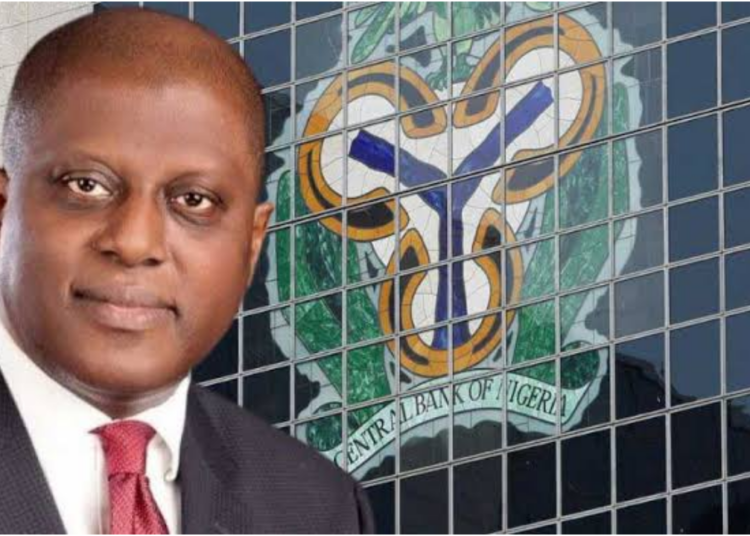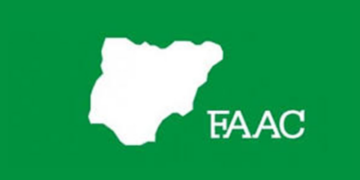After months of rigorous monetary tightening, the Central Bank of Nigeria (CBN) has chosen to apply the brakes—at least momentarily. It was obviously a carefully calibrated move that marks a strategic shift in Nigeria’s monetary policy approach.
In a decision that signals both confidence and caution, the Monetary Policy Committee (MPC) concluded its 300th meeting on May 21, 2025, by voting unanimously to maintain the Monetary Policy Rate (MPR) at 27.5 percent, alongside holding all other policy parameters steady.
Economic analysts say the development marks a significant moment in the policy trajectory of the Olayemi Cardoso-led CBN, which since 2023 has prioritized price stability, currency market reform, and reserve accretion in the face of volatile domestic and global economic conditions. The pause does not suggest an end to the inflation fight; rather, it signals a calculated effort to consolidate earlier gains and monitor near-term developments before taking further action.
The current policy posture is best understood against the backdrop of sustained tightening measures since mid-2023. Under Governor Cardoso, the MPC had steadily raised the MPR—from 18.75 percent in July 2023 to 27.75 percent by March 2025—as part of an aggressive campaign to tame inflation and restore investor confidence in Nigeria’s economy.
That strategy, while necessary, came at a cost to credit availability in the real sector. Now, with several economic indicators showing improvement—particularly in headline inflation, food prices, and exchange rate stability—the MPC has opted to take a moment of reflection and watch rather than maintain an aggressive upward march.
Governor Cardoso, speaking at a media briefing following the meeting, said the decision to hold all rates steady was to allow the committee “a better understanding of near-term developments” in the economy.
The communiqué issued by the MPC offered a more detailed rationale: headline inflation had declined from 24.23 percent in March to 23.71 percent in April, supported by both easing food and core inflation. Food inflation dropped to 21.26 percent in April, while core inflation dipped to 23.39 percent. These shifts suggest that previous rate hikes are beginning to take effect. Moreover, the narrowing gap between official and parallel foreign exchange rates has helped calm market volatility, while the naira has shown relative resilience.
Another key consideration was the improved macroeconomic environment. The Gross Domestic Product (GDP) grew by 3.84 percent in the fourth quarter of 2024, a marginal increase from 3.46 percent in Q3, driven by both oil and non-oil sectors. Additionally, external reserves rose to $38.90 billion by mid-May 2024.
In 2024, Nigeria’s balance of payments (BoP) recorded a surplus of $6.83 billion, marking a turnaround from deficits in the previous two years. The development also reflects strengthening fundamentals.
The hold decision has drawn positive responses from several economic analysts who view the move as a timely recalibration rather than a retreat from reform.
Chief executive officer of the Centre for the Promotion of Private Enterprise (CPPE),
Dr. Muda Yusuf, applauded the MPC’s judgment, describing the pause as “a welcome development.” He explained that the decision to hold “reflects sensitivity to the state of the economy, especially the need to ease the intense pressure on the cost of credit to the real sector.”
Dr. Yusuf noted that with inflation showing signs of gradual moderation and the exchange rate relatively stable, further tightening at this point would have done more harm than good—particularly to small and medium-sized businesses.
Similarly, managing director of Optimus by Afrinvest, Ayodeji Ebo remarked that the decision was “expected and pragmatic.” He stated in a media interview that the hold will “allow the MPC to observe the impact of previous policy adjustments on inflation and exchange rate pressures before taking the next step.” Ebo also emphasized that holding rates helps to prevent over-penalizing businesses that are already grappling with high financing costs and limited demand.
The endorsements underscore a growing consensus in policy circles: the CBN’s recent reforms—including unifying the exchange rate, increasing market transparency, and launching the Non-Resident Bank Verification Number (NRBVN) initiative—are beginning to bear fruit. The NRBVN scheme alone is projected to attract $1 billion monthly into Nigeria’s reserves, further strengthening macroeconomic buffers.
Yet, while the MPC’s restraint is praised in financial and academic circles, Nigeria’s manufacturing sector continues to feel the burden of high interest rates. The Manufacturers Association of Nigeria (MAN), a long-time advocate of more accommodative monetary policy, expressed renewed concern about the cost of borrowing.
In a statement following the MPC announcement, the association reiterated that high interest rates have made it nearly impossible for local manufacturers to access affordable credit. Many small and medium-sized manufacturers are reportedly facing loan rates upward of 30 percent, discouraging capital investments and stifling expansion plans.
MAN acknowledged the gains made in taming inflation but stressed the need to balance price stability with growth imperatives. According to the association, the CBN should begin to consider rate adjustments that make credit more accessible, especially for critical sectors like agriculture, manufacturing, and export processing. The group also called on the fiscal authorities to complement the monetary stance by reducing structural bottlenecks and incentivizing local production.
The challenge facing the MPC is not unique to Nigeria. Around the world, central banks are navigating a delicate balance between controlling inflation and supporting growth. The International Monetary Fund (IMF) recently downgraded its global growth forecast for 2025 to 2.8 percent, citing persistent policy uncertainty and trade tensions.
The MPC acknowledged this backdrop, noting that global headwinds—including volatile oil prices and tighter financial conditions—remain significant threats to Nigeria’s fiscal and monetary stability.
Given these conditions, the CBN’s decision to hold policy rates is arguably both conservative and forward-looking. It allows room for careful observation of inflationary trends, especially the impact of structural factors such as electricity tariffs and foreign exchange demand.
At the same time, the MPC reaffirmed its confidence in the Nigerian banking sector, citing improvements in asset quality and risk management. It also praised the progress made in the ongoing recapitalization of banks, which is expected to strengthen financial intermediation and resilience.
The tone of the MPC meeting suggests a central bank increasingly confident in its reform strategy. Governor Cardoso’s remarks emphasized a shift from reactive monetary intervention to strategic facilitation of private sector-led growth. By delegating implementation roles to commercial banks, particularly in the NRBVN initiative, the CBN has positioned itself more as a policy catalyst than a market actor.
This marks a clear departure from past practices where the central bank was often at the center of quasi-fiscal activities. The new direction, grounded in transparency and market discipline, enhances the credibility of the institution and signals continuity of orthodox monetary policy.
The MPC’s decision to hold all policy parameters steady in May 2025 is a reflection of prudence, strategy, and growing confidence in Nigeria’s reform trajectory. While inflation remains a concern, the downward trend in price growth, exchange rate stability, improved GDP performance, and increasing external reserves provide a solid basis for the Committee’s pause.
Support from leading economists reinforces the wisdom of the decision, even as calls from the manufacturing sector for lower rates remain valid. Ultimately, the move signals that the CBN is not just reacting to economic pressures—it is proactively managing them, guided by data, global realities, and a long-term vision for a more stable and competitive Nigerian economy.





